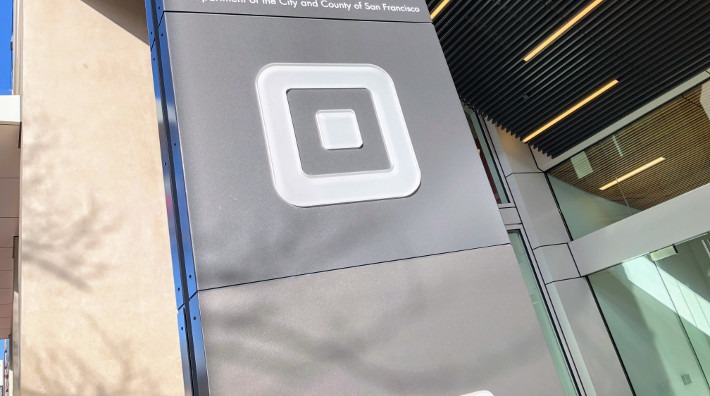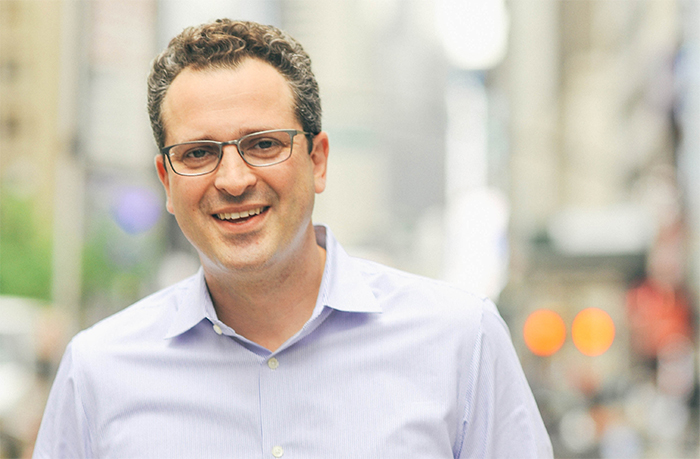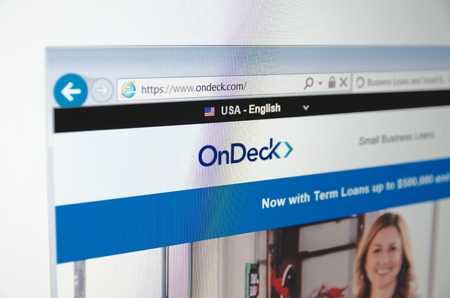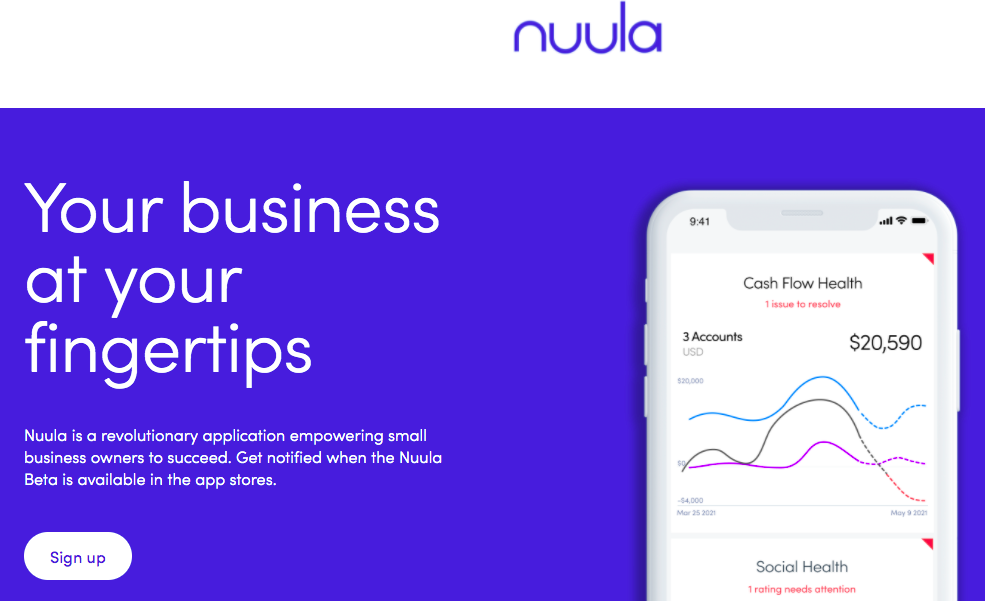Business Lending
Ebay to Launch Sales-Based SMB Loans in UK
May 13, 2021 Ebay is launching a small business working capital product in the UK, offering sales-based loans to 300k SMBS through YouLend.
Ebay is launching a small business working capital product in the UK, offering sales-based loans to 300k SMBS through YouLend.
The product, called “Capital for eBay Business Sellers,” offers loans repaid through a percentage of daily sales and a lump sum. A year after eBay first ventured into offering merchant payments services, the firm is joining the likes of PayPal, Shopify, and Amazon by offering a business loan product. Loans will vary in size based on sales volumes, from £500 to £1 million, or about $640- $1.3M.
“Capital for eBay Business Sellers is intended to help plug this gap, giving small businesses quick access to a range of financing options,” Murray Lambell, GM of eBay UK, said. “With 300,000 UK small businesses trading on eBay, this proposition will help them reinvest, protect jobs, and succeed, even as the government’s support schemes dry up.”
The application process will take five to ten minutes, the firm attests, landing funds that same day.
“Our focus is on giving leading e-commerce platforms, tech companies, and payment service providers the ability to offer their customers rapid funding through our technology platform,” CCO of YouLend Jakob Pethick said. “We’re delighted to partner with eBay UK to support their business sellers thrive and grow.”
North Carolina Joins States Proposing Commercial Financing Disclosures
May 12, 2021 North Carolina is the latest in a series of states to introduce a commercial financing disclosure bill.
North Carolina is the latest in a series of states to introduce a commercial financing disclosure bill.
The “Small Business Truth in Financing Act” introduced on May 11th, would cover business loans, factoring, and merchant cash advances.
The language was copy and pasted from bills elsewhere, like the recent one in Connecticut. The “double dipping” term is noticeably absent from this one, however.
The North Carolina bill was introduced by Rep James D. Gailliard (D). If it succeeds in moving forward, it’s written to go into effect on May 1, 2022.
Square Capital Originated $392M in SMB Loans in Q1
May 6, 2021 Square Capital originated 78,000 small business loans in Q1 for a total of $392M. That figure does not include PPP lending, which comprised of 57,000 loans for a total of $531 million.
Square Capital originated 78,000 small business loans in Q1 for a total of $392M. That figure does not include PPP lending, which comprised of 57,000 loans for a total of $531 million.
“After pausing flex loan offers from early March to late July of 2020, we have been measured in our ongoing ramp of offers to sellers,” Square said. “Revenue from Square Capital was down on a year-over-year basis due to a lower mix of flex loans during the quarter.”
Square Capital originated slightly under $1 billion in 2020, down from the $2.3 billion in 2019.
Noah Breslow Has Left OnDeck
May 6, 2021OnDeck CEO Noah Breslow announced that as of April 30th, he had left OnDeck. He wrote the following in a May 6th post on LinkedIn:
“It is hard to believe, after a nearly 14 year run, that last Friday was my final day as an OnDecker. Working to build OnDeck with our incredible team, our partners, our board members and investors, and of course, our small business customers was the greatest professional experience I’ve had, and I am eternally grateful for the efforts of everyone involved in the company over so many years. I am proud of everything we accomplished together – pioneering the online lending industry, delivering nearly $14 billion dollars to small businesses, building a trusted brand and phenomenal culture, and achieving numerous industry firsts along the way.
I am especially proud of the way our team and our leaders handled themselves last year under the pressure of COVID. We worked together to navigate a very challenging situation, and I’ll never forget the teamwork and collaboration under stress that allowed us to land the company safely and become part of Enova – a transaction that I firmly believe was the right thing to do for the company’s stakeholders.”
 Though Breslow was not the founder of OnDeck, he was one of its earliest employees and he later steered the company as its chief executive up through and past the point of it going public on the NYSE. In 2020, OnDeck was acquired by Enova.
Though Breslow was not the founder of OnDeck, he was one of its earliest employees and he later steered the company as its chief executive up through and past the point of it going public on the NYSE. In 2020, OnDeck was acquired by Enova.
Breslow updated his LinkedIn profile to say that as of May, he is now an “Operator in Residence” for Bain Capital Ventures.
Bain Capital Ventures posted a lengthy welcome to Breslow on Medium immediately after.
“Noah joins BCV this week as an operating partner, and we couldn’t be more delighted,” wrote Matt Harris, partner at Bain Capital Ventures. “You can reach him at nbreslow@baincapital.com with your next amazing idea.”
Breslow followed it with another post on LinkedIn:
“So, what’s next? Well, those who know me know I am passionate about the craft of entrepreneurship, and I have served as an angel investor and informal advisor to many startups and founders over the years.
After the OnDeck acquisition closed, Matt Harris, a longtime close friend and early OnDeck investor, reached out to me to chat about what might be next. Matt is a special person, and a renowned fintech investor – in fact, Matt was responsible for getting me into OnDeck 14 years ago, and that worked out pretty well! So, when he floated the idea of joining him at Bain Capital Ventures to do this type of work more formally, I was all ears.
I knew I wanted to spend some time working with innovative startups and exploring some new technology areas before diving into my next big thing – after all, it might last another 14 years! So, I am thrilled to announce I am joining Bain Capital Ventures as an operating partner – working with our portfolio CEOs and helping the firm invest in fintech and tech companies across all stages. Excited for what’s next!”
OnDeck Proving to be Extremely Valuable Acquisition for Enova
April 30, 2021 When Enova acquired OnDeck, it thought that the company’s legacy portfolio would have very little value. Now that the dust has settled, it’s become a gold mine. “We now expect to receive over $200 million of total cash from the acquired portfolio, net of securitization repayments,” said Enova CEO David Fisher in the company’s quarterly earnings call.
When Enova acquired OnDeck, it thought that the company’s legacy portfolio would have very little value. Now that the dust has settled, it’s become a gold mine. “We now expect to receive over $200 million of total cash from the acquired portfolio, net of securitization repayments,” said Enova CEO David Fisher in the company’s quarterly earnings call.
Enova reported that small business lending was now more than 50% of their portfolio and that they recorded originations of $322 million in small business funding in Q1.
“From an operational perspective, the integration of OnDeck is largely complete,” Fisher added. “Our three SMB products are working together as a single business, and we are on track to deliver more than the forecasted $50 million of annual cost synergies, primarily from eliminated duplicative resources as well as $15 million in run rate net revenue synergies.”
OnDeck’s lending business has also allowed the company to price a $300 million securitization debt facility, backed by OnDeck term loans and lines of credit.
“We’re pleased to report a record first quarter of profitability, driven by solid credit performance, improving originations, and disciplined expense management,” said Fisher. “We are encouraged by the recent signs of a recovery in demand and believe that our diverse product offerings, nimble machine-learning-powered credit risk management capabilities, and solid balance sheet position us well to profitably accelerate growth as the economy continues to recover.”
IOU Financial Posts 2020 Results
April 29, 2021 IOU Financial filed their full-year 2020 financial results, boasting a total of $84.9 million in originations. Though at a $3.2 million net loss and decrease of 45% in originations from 2019, IOU representatives attest the firm weathered the worst of the pandemic and has left the other side prepared to take part in fueling “the recovery ahead.”
IOU Financial filed their full-year 2020 financial results, boasting a total of $84.9 million in originations. Though at a $3.2 million net loss and decrease of 45% in originations from 2019, IOU representatives attest the firm weathered the worst of the pandemic and has left the other side prepared to take part in fueling “the recovery ahead.”
Shares of IOU are trading at about 8 cents, creating a market cap of just under $10 million. In 2020, Neuberger Berman acquired a significant stake in the company and agreed to purchase up to $150M in loans a year over two years. Founder and CEO Phil Marleau will transition into an advisory role on June 10th, replaced by Robert Gloer, COO.
“Robert and I have worked side-by-side since the Company was founded,” said Marleau. “Together, we underwrote our first small business loan in December 2009 and have since originated nearly US$1 billion in loans. IOU’s resilience and success are a direct result of the team’s considerable efforts over the past decade – a team that Robert and I have built and led. I look forward to continuing our partnership in an advisory capacity and as Director.”
BFS Capital is Now Nuula
April 29, 2021 “The reimagined future of BFS starts now, and today I’m proud to announce that BFS Capital has become Nuula,” wrote BFS Capital CEO Mark Ruddock on LinkedIn. In a lengthy post, he explained that the company has shifted its “philosophy from solely selling loans acquired primarily from brokers, to providing a more holistic, customer-centric mobile app that entrepreneurs would find useful each and every day.”
“The reimagined future of BFS starts now, and today I’m proud to announce that BFS Capital has become Nuula,” wrote BFS Capital CEO Mark Ruddock on LinkedIn. In a lengthy post, he explained that the company has shifted its “philosophy from solely selling loans acquired primarily from brokers, to providing a more holistic, customer-centric mobile app that entrepreneurs would find useful each and every day.”
“Nuula is a mobile application that gives small business owners instant access to critical business metrics anytime, anywhere.
It allows real-time monitoring of cash flow, personal and business credit activity, and social ratings and reviews. Small business owners know immediately if there’s an issue with their cash, credit, or reputation that requires action.
But this is just the beginning.”
“With regards to our legacy business, our team will continue to support our existing customers and partners as we transition all our services to Nuula,” he added. “Our existing customers will be the first to be offered a chance to experience Nuula. And over the next few weeks, our existing working capital customers will be able to unlock additional capital from the first of our Nuula ecosystem partners, with exciting incentives and in a way that is as seamless as possible. We expect to make that announcement soon.”
You can read the full post here.

Shopify Capital Q1 SMB Funding Soars
April 28, 2021 Shopify Capital posted monster figures on Wednesday, originating $308.6 million total in MCA and loans. Across the US, Canada, and the UK, Shopify saw a 90% increase from Q1 last year.
Shopify Capital posted monster figures on Wednesday, originating $308.6 million total in MCA and loans. Across the US, Canada, and the UK, Shopify saw a 90% increase from Q1 last year.
In total, Shopify Capital originated $794 million in 2020, and with a blistering first quarter, it may be on track to originate over a billion dollars this year.
“Shopify’s momentum continued into 2021 as digital commerce tailwinds remained strong and merchants took advantage of the range of capabilities offered by our platform,” Shopify CFO Amy Shapero said in an earnings statement. “We are focused on building a commerce operating system that will help shape the future of retail. Our merchant-first business model positions us to capture the massive opportunity presented by the growth of digital commerce, benefiting both our merchants and Shopify.”
Overall, total revenue for Q1 was $988.6 million, a 110% increase year over year. Nearly a third of the posted revenue was small business lending and MCA funding.





























